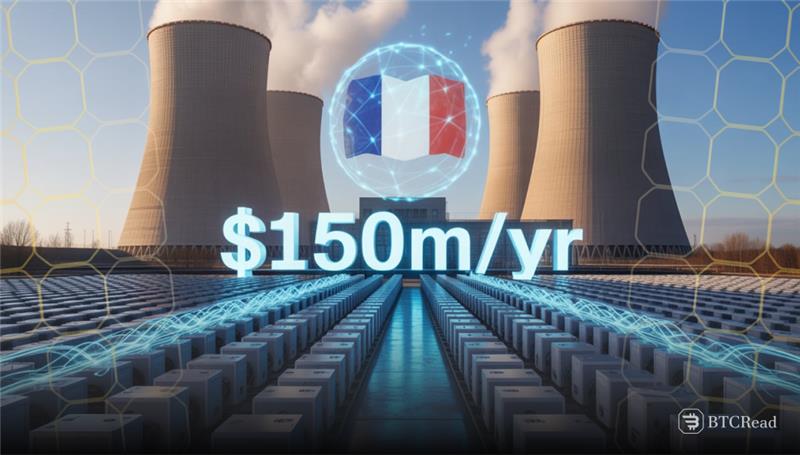On July 11, French lawmakers introduced a bill aiming to launch a five-year Bitcoin mining pilot. The proposal focuses on using surplus nuclear power to secure the Bitcoin network. In doing so, France looks to convert unused energy into economic value while relieving pressure on its electricity grid.
This country’s network today relies largely upon nuclear power. Nearly 70% of the nation’s electricity comes from the reliable and low-carbon energy source. But the sudden spike of the past 25 years in solar and wind production has disrupted the balance of the network. The network occasionally generates more electricity than it can store up or sell, and producers have to sell it at a loss.
The act seeks to direct the surplus energy towards powering data centers that are used to mine Bitcoin. The centers run special computers designed to validate transactions and earn crypto gains. Because the mining works can either go up or down very rapidly, it matches the volatile character of the surplus power.
Bitcoin Mining could ease pressure on Nuclear reactors
Variation of nuclear output to match solar and wind production puts reactors under strain. Ongoing output changes can be harmful to essential infrastructure. By running mining centers on auxiliary nuclear output, France would be spared repeated shutdowns and restarts of reactors.
Lawmakers argue it preserves the national energy fleet. It uses the taxpayer-financed facilities more effectively. Preliminary estimates are that earmarking a single gigawatt of surplus electricity can raise up to $150 million a year. The funds can cover fixed costs as well as finance new plants.
Mining offers secondary gains as well. The heat of the mining equipment, usually wasted, can be used. In other countries, the energy warms homes, greenhouses, and even fish farms. France can do the same to make energy utilization more efficient among industries.
France eyes a bigger role in global crypto mining
For the foreseeable future, most Bitcoin mining takes place in Asia and North America. France can be a future center if it puts to use the clean and reliable energy that it has. The plan entails regulation in favor of local companies, enhancing national energy self-reliance.
Others have tried the same efforts. Hydropower for mining is utilized by Norway, Sweden, and Iceland as well. Texas, in the United States, even pays the miners during peak hours to decrease output. These uses show how mining can be as much of an asset to the grid as how it can boost the economy.
This pilot puts France closer to energy consumption modernization. If the project becomes a success, it can provide a blueprint for clean, home energy fueling the digital future. The plan can make France a future clean Bitcoin mining leader. It can also minimize energy losses while supporting local industry and revenue.







